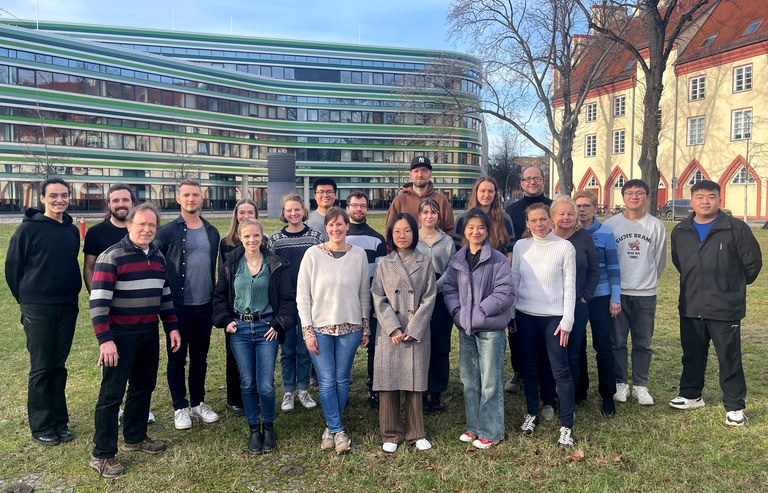Plant Physiology Group
Content is not displayed correctly?
Link to our website optimised for mobile devices

The Department of Plant Physiology works on several aspects of modern molecular physiology and cell biology in plants. Multiple methods and techniques of biochemistry, genetics, molecular and cell biology are applied in research and training programs for students and young academics. We are interested in the unique properties and functions of plant cells, such as the primary metabolism, pigment biosynthesis and photosynthesis in plastids and focus our efforts on exploring the metabolic control of tetrapyrrole biosynthesis. We study the intracellular communication between the nucleus and the two main plant organelles, plastids and mitochondria, in particular the tetrapyrrole-mediated signalling of plastids. A further research area is the regulation of sucrose transport (PD Dr. C. Kühn).
The Department of Plant Physiology contributes with several courses to the teaching programme organized by the Institute of Biology. “Basics of Plant Physiology” including lectures and a practical course are offered in the Bachelor programme, while in the Masters programmes “Molecular Life Sciences” and “Organismic Biology and Evolution” lectures and training courses in “Plant Molecular Biology”, “Confocal Laser Scanning Microscopy”, “Photosynthesis” and “Plant Transformation Techniques” are scheduled. They are combined with specialized lectures and seminars in photosynthesis, stress physiology, signal transduction and hormone physiology for advanced students. Students and PhD students report about their experimental work in the weekly progress seminar of the Department of Plant Physiology.
Content is not displayed correctly? Link to our website optimised for mobile devices
